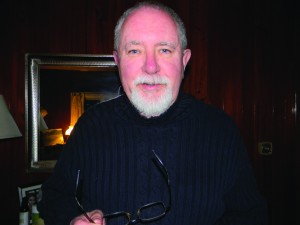By Catherine Portman-Laux
David Haviland, a licensed psychotherapist specializing in anger management, focuses on helping his patients to avoid what he terms “the big C.” In this case the “C” stands for “consequences” ”” consequences of unbridled anger: jail, lost jobs, broken relationships and even such medical problems as ulcers and migraines.
Hearing accounts of school killings, the public has become aware of need for intervention before anger gets out of hand, psychotherapists are finding. But less publicized than these sporadic incidents are anger situations in the home, on the job and in other situations.
Haviland practices out of the Cold Spring Healing Arts Center. His clientele includes individuals sent to him by the courts for a five-session psychoeducational program as an alternative to other sentences.
“I bond with patients by sharing my own anger issues,” Haviland says. “I was in a supermarket line once before heading to an appointment. The customer at the register was fiddling with coupons, a clerk was texting and the bagger was wrinkling papers into a ball and tossing them. The time for my appointment crept up and so did my anger. If I had gone into an uncontrollable rage, the manager would have been calling the police.”
Haviland urges patients to measure their anger on a scale of 1 to 10, viewing nine as a final warning.
“You”™re driving along and a motorist cuts you off. That might be a 2,” he says. “He gives you the finger and that might be a 5. You drive eight miles, cut him off, get out of the car and push in his headlights. That”™s a 10.” He urges patients to take control of themselves before their anger level reaches that extreme.
Haviland prides himself on successful intervention with a stay-at-home father whose wife was pursuing a career. “When she decided to leave him, he was without his own career. In anger he punched a hole through the wall before deciding to get a hold on himself and seek therapy,” he relates. “He got a job, a new apartment, learned to control his anger and ultimately got shared custody of his children.”
He also counsels couples who opt to have their relationship continue. “I tell patients that life in a marriage, employment situation or other relationship is a two-way street,” he says.
Raised in Larchmont, the oldest of 11 children, Haviland initially headed for a career in communications. He earned a Bachelor of Arts degree from the University of California at Berkeley with a double major in communications and sociology. While working as a copywriter and creative director at CBS and Viacom, he created public-service announcements and advertisements to promote such programs as the Harlem Children”™s Zone.
Through this work he recognized a calling to be of service to others and went on to earn a master”™s degree in social work from the State University of New York at Albany.
Licensed by the state Department of Education as a clinical social worker with psychotherapy privileges, he began his practice part time while remaining in the business world. Eventually he stepped down from a $100,000-a-year corporate job to accept $41,000 annually at St. Francis Hospital and Health Centers in Poughkeepsie, where he spent seven years while continuing to build a private practice. He maintains a website, angermanagementamerica.com.
Haviland and his wife, Deborah, an artist, reside in Cold Spring and are the parents of two grown daughters, Stephanie and Rebecca.















